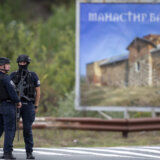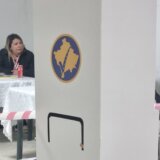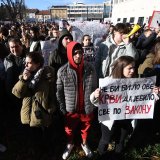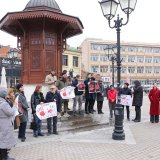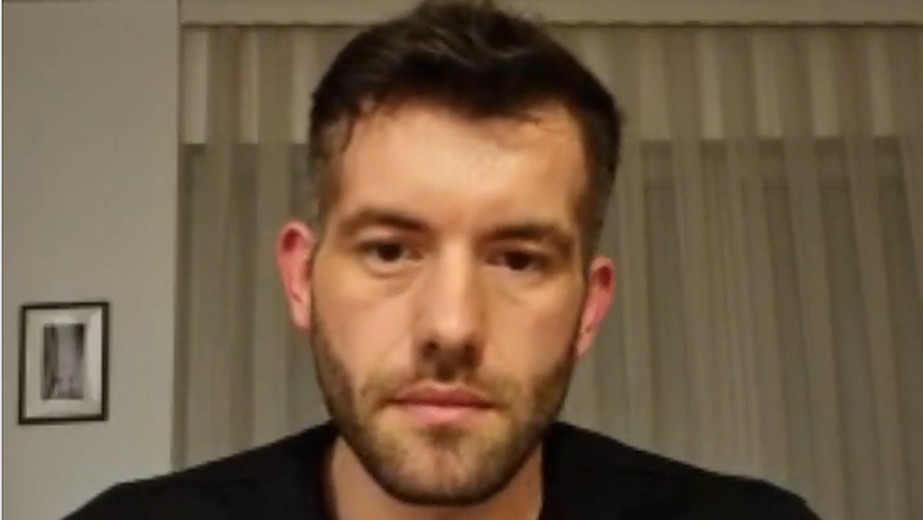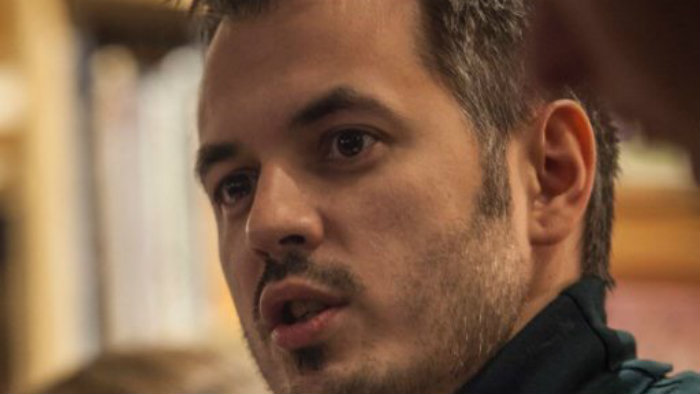
Ne mislim da će Kosovo i Srbija postići bilo kakvu iskrenu normalizaciju odnosa bez pravog suočavanja sa prošlošću.
Lično, iako se zalažem za normalizaciju, nikada neću gledati na Srbiju kao na normalnu ili prijateljsku državu, sve dok odbija da se suoči sa institucionalizovanim fašizmom i duboko ukorenjenim rasizmom uperenim protiv Albanaca, koji je meni i mojim građanima oduzeo normalno detinjstvo. Sve dok ovo osećanje rasističke nadmoći nastavlja da živi u Srbiji, vidno u tabloidima i političkom govoru, možemo samo da se pretvaramo da smo uključeni u nekakav dijalog ili normalne odnose, ali to je sve krhko i površno – poručuje Agon Malići, politički analitičar, pisac i osnivač portala „Sbunker” iz Prištine, u intervjuu u sklopu projekta „Druga strana Kosova” portala Danas.
- Pitanja sa društvenih mreža:
Da li na Kosovu postoji partija socijaldemokratske orijentacije u pravom smislu te reči?
– Samo dve stranke na Kosovu se samoidentifikuju kao levičarske: Vetevendosje i Socijaldemokratska partija. Pre nekoliko godina u Vetevendosju su prvi put počeli da govore o „progresivnom oporezivanju” i ostalim stvarima. Međutim, to je zasenjeno nacionalističkim i antikolonijalističkim stavovima koji su isticani u prvi plan, jer je bilo lakše mobilisati mase na tim osnovama. To je jedan od razloga i za nedavnu podelu stranke. Sada je grupa koja je napustila Vetevendostje preuzela Socijaldemokratsku partiju osnovanu devedesetih godina i pokušava da je izgradi kao modernu stranku levog centra, sa većim fokusom na klasno umesto identitetskog pitanja. Njihovi osnovni dokumenti i program su dobro artikulisani, zbog čega može da se kaže da su oni socijaldemokrate u pravom smislu te reči. To takođe pokazuju i pitanja kojima se bave na lokalnom i centralnom nivou. Ipak, kao i kod drugih partija u ideološkom spektru, politička stvarnost zasnovana je na klijentalizmu, potrebi za koalicijama i pravljenju kompromisa, pa je teško reći da li se radi o socijaldemokratskoj orijentaciji u pravom smislu te reči.
Kako danas žive obični ljudi na Kosovu?
– Pretpostavljam da odgovor zavisi od toga koga pitate. Teško je, kao i svuda na Balkanu, ali je daleko od „crne rupe”, što je slika koju mnogi usled predrasuda imaju u svojim glavama. Prihodi većine ljudi, posebno onih niskokvalifikovanih, i dalje su niski, ali dobar deo njih preživljava uz pomoć dijaspore. Postoji srednja klasa koja sebi može da priušti odlazak na more u Albaniju vikendom, ali su i oni zabrinuti za budućnost svoje dece. Ipak, postoji energija koja podstiče ljude da se i dalje nadaju, što je tipično za zemlju sa velikim brojem mladih, te za društvo koje uživa u novoosvojenoj slobodi. Ponekad sam zadivljen nivoom kreativnosti i preduzetništva u biznisu i kulturnom sektoru – u Prištini se oseća ta energija i dešavaju se uzbudljive stvari. Međutim, osećam da se ta ista energija polako troši. Čujem da su ljudi nezadovoljni tempom napretka, kao i političkim elitama koje misle samo na sebe, zbog čega mnogi razmišljaju o odlasku u inostranstvo. Osećaj izolacije zbog viznog režima sa EU sve više guši. Međutim, dozvolite mi da razbijem mit koji mnogi ponavljaju kada žele da dovedu u pitanje državnost Kosova – uprkos teškoćama, na Kosovu ne postoji „jugonostalgija”, ili je potpuno marginalna. Objektivno govoreći, na osnovu svih merljivih istorijskih pokazatelja, Kosovo nikada nije bolje stajalo. Međutim, ima još mnogo toga da se uradi, svakodnevni izazovi su veliki, a očekivanja visoka, pa je veoma lako zaboraviti tu istorijsku perspektivu.
Postoji li mogućnost da se mladi iz Srbije i sa Kosova povežu?
– Postoji. Međutim, prošlost kao i aktuelni sporovi ostavljaju malo prostora za neku vrstu sistemske promene u društvu. Programi razmene postoje na regionalnom nivou, ima i bilateralne saradnje u okviru civilnog sektora, ali se ona odvija na margini. Postoji velika podela na etničkom nivou i ona je najizraženija na Kosovu, gde je komunikacija između različitih zajednica površna. Zaista mislim da ne možemo da uspostavimo smislene veze ukoliko nastavimo da se pravimo da se u prošlosti ništa nije dogodilo, te ako se ne suočimo sa razlozima zbog kojih su naša društva toliko podeljena.
- Pitanja novinara Danasa
Šta bi, prema Vašem mišljenju, trebalo najpre i prioritetno učiniti kako bi se odnosi Srbije i Kosova normalizovali?
– Ne može doći do normalizacije odnosa dok Srbija ne prihvati kosovsku nezavisnost, te dok ne podrži uspeh Kosova kao države. Svađalački pristup Srbije i njeni pokušaji da podrije državnost Kosova načinili su stvari gorim za sve, a naročito za zajednicu kosovskih Srba, jer su oni doživljeni kao antidržavni element. To je našim elitama dalo sjajan izgovor da ne brinu o manjinama. Čak i da se problem nezavisnosti izuzme iz razmatranja, ne mislim da će Kosovo i Srbija postići bilo kakvu iskrenu normalizaciju odnosa bez pravog suočavanja sa prošlošću. Lično, iako se zalažem za normalizaciju, nikada neću gledati na Srbiju kao na normalnu ili prijateljsku državu, sve dok odbija da se suoči sa institucionalizovanim fašizmom i duboko ukorenjenim rasizmom uperenim protiv Albanaca, koji je meni i mojim građanima oduzeo normalno detinjstvo. Sve dok ovo osećanje rasističke nadmoći nastavlja da živi u Srbiji, vidno u tabloidima i političkom govoru, možemo samo da se pretvaramo da smo uključeni u nekakav dijalog ili normalne odnose, ali to je sve krhko i površno.
Kako ocenjujete proces normalizacije koji trenutno vode vlasti u Prištini i Beogradu?
– Mislim da je to frustrirajuće za obične ljude sa obe strane granice. Proces normalizacije uspostavljen je iz potrebe da stvari napreduju, ali je suviše ispolitizovan i udaljen od svakodnevice. Koristile su ga, a i zloupotrebljavale, političke elite za sopstvene programe, kao i međunarodna zajednica koja dijalog vidi kao instrument uključenosti u region bez političke težine. Evropska unija je izgubila kredibilitet i svoju težinu kao posrednik zbog nedostatka jedinstva po pitanju ovog problema, stoga nije iznenađujuće da je dijalog pod okriljem EU u ćorsokaku. Nisam potpuno nihilističan po ovom pitanju, i dalje mislim da je dijalog jedini način za napredovanje i da je imao određene rezultate, pogotovo na početku kada je doprineo smanjenju etničkih tenzija i integraciji struktura Srba koji žive na Kosovu u kosovske institucije. Međutim, kako se približavamo kraju, odnosno srpskom priznanju Kosova, sve je vidljivije da će ovaj visokorizični dijalog koji vode elite naposletku pogoršati stvari, jer se mnogo toga tiče samih lidera, a ne društava.
Da li je realno da normalizaciji odnosa Kosova i Srbije doprinesu političke elite koje su bile aktivne tokom sukoba devedesetih godina?
– Svakako se nadam, jer ne izgleda kao da ćemo imati neke bolje elite. Veoma je moguće da će aktuelni lideri postići neku vrstu političkog sporazuma, jer oni su ti sa političkim kapitalom u nacionalističkim krugovima, koji je neophodan da se to dogodi. Liberalni i građanski delovi naših društava bili bi politički linčovani da se samo usude da postignu bilo kakav sporazum s drugom stranom. Ironično, samo „patriote“ smeju da budu „izdajnici“.
Da li smatrate da je prošlo dovoljno vremena od sukoba i da je došao trenutak da Srbi i Albanci počnu da žive normalno?
– Ne mislim da je vreme, kao takvo, efektan lek za probleme sa kojima se suočavamo. Imamo nekoliko generacija kojima je prošlost naštetila i ne možemo da očekujemo da će vreme zalečiti njihove rane, jer su i dalje mnoge otvorene. Potreban nam je ozbiljan dijalog i priznanje onoga što se dogodilo u prošlosti, jer je to izvor koji legitimizuje dehumanizaciju koju osećamo „prema drugom“. Možda je mlađima, koji nemaju direktno iskustvo iz rata, lakše da prihvate ovaj nonšalantni pristup „gledanja prema budućnosti“, ali čak ni oni ne mogu da pobegnu od toga da sebe doživljavaju kao žrtve. Govoreći kao građanin Kosova – da, svi su svesni toga da smo slobodni i da samo sebe možemo da krivimo za sopstvene neuspehe. Međutim, na našu svakodnevicu i dalje jako utiče srpska sabotaža naše državnosti i teško je ljude naterati da to ignorišu. Prosečnom građaninu Kosova Ivica Dačić je i dalje lice Srbije i to ne prijateljsko. Široka podrška društva za takse na srpsku robu je čist primer koliko smo mi daleko od želje za normalizacijom.
Kako ocenjujete razvoj glavnog grada Kosova, Prištine, od proglašenja nezavisnosti do danas?
– S obzirom na to da sam rođen i odrastao u Prištini, bolno je gledati kako grad nije uspeo da se izbori sa pritiskom tokom posleratnih godina, kako je sebe osudio na propast, a možda čak i izgubio priliku da postane normalna prestonica. Priština ima velike infrastrukturne potrebe, međutim, to se sabotira već skoro dve decenije, sada od centralne vlade koja nikada nije bila saveznik sa onima na lokalu. Grad se razvio bez ikakve koherentne vizije. Ono kako izgleda Priština sušta je suprotnost onoga što se u njoj događa. Osećam da ima duh i većinu tog duha doneli su mladi koji su došli iz raznih delova Kosova kako bi Prištinu načinili svojim domom. Imam osećaj kao da donose najbolju energiju u grad time što pokušavaju da ga oblikuju po svom – mnogo više nego starosedeoci koji žive u lažnom osećaju ponosa i slave.
- Pitanja koja je postavio politički analitičar i doktorand na beogradskom Fakuzltetu političkih nauka Boban Stojanović
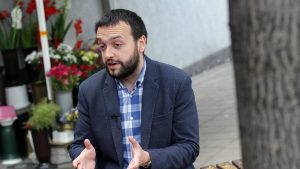
Kako ocenjujete trenutnu političku situaciju na Kosovu? Koliko su sukobi između Tačija i Haradinaja stvarni, a u kojoj meri predstavljaju samo jednu formu politike?
– U skladu sa našim nacionalnim narativom i pogledom na stvari, uvek mislimo da je druga strana organizovanija i ujedinjenija. Prijatna je pomisao da Haradinaj i Tači igraju veoma sofisticiranu igru. Bio bih prijatno iznenađen.
Da li mislite da će doći do postizanja sporazuma između Tačija i Vučića?
– Budim se misleći da hoće, a ležem ubeđen da neće. Nekako mislim da je dijalog postao previše veliki da bi propao i da će se nešto dogoditi u toku 2019. godine.
Koliko je teško biti mlad analitičar na Kosovu?
– Ne znam da li sam sa 34 godina i dalje mlad, ali izazovi su isti kao i na drugim mestima. Teško je prolaziti kroz razne političke programe i polarizaciju ukoliko imate sopstveni stav. Odmah vas obeleže kao nekoga ko se zalaže za interese ovog ili onog. Ali mislim da je to normalna cena.
ENGLISH VERSION
I don’t think that Kosovo and Serbia will reach any genuine normalization without a genuine process of dealing with the past. Personally, although I am in favor of normalization, I will never consider Serbia a normal or friendly country as long as it fails to deal with the institutionalized fascism and the deeply rooted racism against Albanians that deprived me and my fellow citizens of normal childhood. Until this racist sense of superiority continues to prevail in Serbia – visible in tabloids and political discourse – we can only pretend we are engaged in some kind of a dialogue or normal relations, but it will be superficial and fragile – Agon Maliqi, a political analyst, writer and founder of the Sbunker portal from Prishtina, says, answering the questions asked by the followers of our portal and his counterparts from Serbia within Danas’ online project „Other Side of Kosovo“.
- Questions posted by the social networks followers:
Is there any party of social-democratic orientation in Kosovo, in the true sense of the word?
– Only two parties in Kosovo self-identify as leftist – Vetevendosje and the Social Democratic Party. A few years back Vetevendosje started talking for the first time things such as the “developmental state”, progressive taxation, etc. But these things clashed or were overshadowed by the party’s more anti-colonial and nationalist outlook which was often put at the forefront of its agenda because it was and it is easier to mobilize masses on that basis. This is one of the reasons for the party’s recent split. Now the group that split from Vetevendosje took over the Social Democratic Party established in the early 1990’s and are trying to rebuild it as the modern center-left focusing on class rather than identity dimensions. Their core documents and programs are well articulated and can be said to be social democratic in the true sense of the word. Also, based on the causes they have chosen to highlight at the local and central level, they are also trying to keep to that standard. Nevertheless, as with other parties in the ideological spectrum, the political reality based on clientelism, need for alliances and compromises, persistent weak mobilization based on the class due to nationalistic society, makes it difficult to say whether this is social-democracy in the true sense of the word. Also, it remains to be seen how the SDP will fare electorally with this program.
How do ordinary people live in Kosovo today?
– Depends on who you ask, I guess. Overall, it’s rough just like elsewhere in the Balkans, but far from the “black hole” prejudicial image many have in their head. Incomes for most people, especially the low skilled, remain low but many (about ¼) get through thanks to the diaspora. There is a middle class that can afford to consume and enjoy things like going to the seaside in Albania at weekends, but it also struggles with the poor state services and is worried about the future of their kids. But there is resilience and an energy that still keeps many people hopeful – which is rather typical for a country with so much youth and a society enjoying a newly won freedom. Sometimes I am amazed at the level of entrepreneurship and creativity in the business and culture sectors – Pristina is often buzzing with that energy and there are exciting things happening. I can sense though that this energy is slowly wearing out and as elsewhere in the Balkans, I hear people being impatient with the pace of progress, with the self-serving political elites – and I hear more talk of people wanting to move abroad. The sense of isolation due to visa regime with the EU and political stalemate is increasingly suffocating. But let me break the myth I’ve heard many say when wanting to discredit Kosovo’s statehood – despite the hardship, there is no Yugonostalgia, or even if there is, it is very marginal. Objectively speaking, by all measurable historical indicators, Kosovo was never in a better place. But it has so much to do to catch up, everyday challenges are so great and expectations are so high that it is very easy to forget this historical perspective.
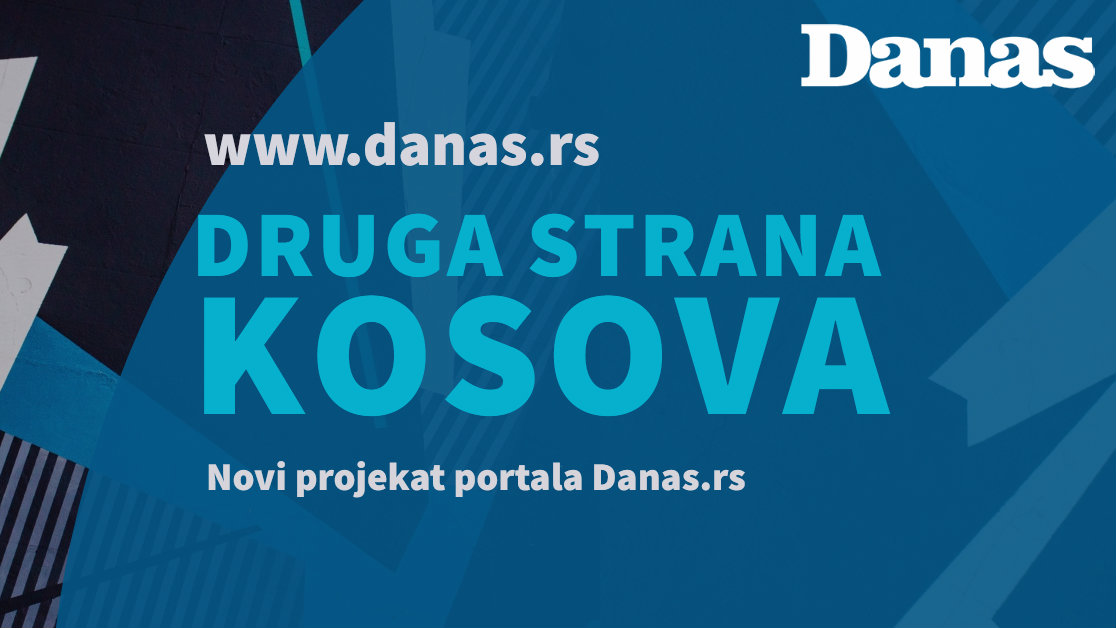
Is there any possibility of connecting young people from Kosovo and Serbia?
– There is but it’s all too tied up to the past and current disputes that there is very little space for this to lead to some kind of systemic changes in society. Exchange programs exist at the regional level (e.g. Ryco) or bilaterally between civil societies, but they are marginal. There is a big ethnic divide and it’s the most obvious within Kosovo where communication between communities is marginal or superficial. I really think there can be no meaningful connection if we keep pretending that nothing happened in the past and if we don’t face or confront the reasons why the societies are so apart.
- Questions asked by Danas journalists
What, in your opinion, should be prioritized first and foremost in order to normalize relations between Serbia and Kosovo?
– There can be no normalization of relations without Serbia not only accepting Kosovo’s independence but also supporting the success of Kosovo as a state. Serbia’s confrontational approach and its attempts to undermine Kosovo’s statehood have only made things worse for everyone, especially the Kosovo Serbs community as they are perceived as, and incited by Serbia to act as, an anti-state element. It has given our elites a great excuse not to give a damn about genuine minority outreach. But even if the issue of independence is taken out of the picture, I don’t think that Kosovo and Serbia will reach any genuine normalization without a genuine process of dealing with the past. Personally, although I am in favor of normalization, I will never consider Serbia a normal or friendly country as long as it fails to deal with the institutionalized fascism and the deeply rooted racism against Albanians that deprived me and my fellow citizens of normal childhood. Until this racist sense of superiority continues to prevail in Serbia – visible in tabloids and political discourse – we can only pretend we are engaged in some kind of a dialogue or normal relations, but it will be superficial and fragile.
What do you think about the process of normalization that is currently being led by the authorities in Pristina and Belgrade?
– I think it is a frustrating exercise for ordinary people on both sides of the border. It’s born out of the necessity to move things forward but it is too political and distant from our everyday lives. It has been used and abused by the political elites for their own agendas, as well as by the international community which sees it as an instrument of engagement in the region but without putting some real political weight behind it. The EU has lost its credibility and its weight as an interlocutor due to its lack of unity on the issue, so it’s no surprise that the EU-facilitated process has reached a stalemate. That being said, I am not entirely nihilistic about the exercise and I still think that the dialogue was the only way forward and that it did have some results, especially in the early years when it helped in decreasing ethnic tensions and integrating Kosovo Serbs structures into Kosovo’s institutions. But the closer we come to the endgame – i.e. Serbia recognizing Kosovo – the more we see that this elite driven dialogue has high risks and might end up making things worse, because so much of this is about the leaders themselves and not about the societies.
Is it possible that the normalization of relations between Kosovo and Serbia might be achieved by the political elites that were active during the 1990s conflicts?
– I certainly hope so, because it doesn’t look like we are producing any better elites. It is quite possible in fact for the current leaders to be the ones to reach some kind of political agreement as they are the only ones with the political capital in nationalist circles to pull it off. The liberal and civic parts in our societies would be politically lynched if they dared to come to any kind of agreement with the other side. Ironically, only the “patriots” are allowed to be “traitors”.
Do you think that enough time has passed since the conflict and that it’s time Serbs and Albanians started living normally?
– I don’t think that time as such is a real and effective cure for the problems we face. We have several generations that grew up damaged by the past and we can’t expect time by itself to cure the wounds because many of them remain open. We need a true dialogue and recognition of what happened in the past because that is the source which legitimizes the dehumanization that we have for “the other”. Maybe it is easier for younger generations without direct experiences from the war to adopt this nonchalant approach of “looking towards the future”, but even they can’t escape the sense of victimization. Speaking as a Kosovar, yes, everyone is aware that we are free and have only ourselves to blame for our failures. But our everyday life remains heavily influenced by Serbia’s sabotage of our statehood, so it’s hard to get people to look beyond that fact. To the average Kosovar, Ivica Dacic is still the face of Serbia and that is not a friendly face. The widespread social support for the taxes on Serbian goods is a clear example of how far we are from wanting normalization.
How do you assess the development of Kosovo’s capital Pristina since declaring independence until today?
– Being born and raised in Pristina, it is rather painful to see how the city hasn’t managed to contain the pressure during the post-war chaos years and how it doomed itself to failure and maybe even lost the chance to become a normal capital ever since. Pristina has big infrastructure needs but it has been sabotaged for almost two decades now by the central level governments which have never been aligned with local ones. The city has developed without any coherent vision. The way it looks though is in stark contrast with what happens within the city. I feel like it really has a spirit and much of it has been brought by young people who came from other parts of Kosovo to make Pristina their home. I feel like they bring the best energy in town by trying to shape the city in their own terms – much more than the “old citizens” who live within this false sense of glory and pride.
- Questions asked by political analyst Boban Stojanovic
How do you assess the current political situation in Kosovo? Are the conflicts between Thaci and Haradinaj real, or are they a form of politics?
– In our national narratives and outlook on things, we always think that the other side is very organized and unified. It’s a pleasant thought to think that Haradinaj and Thaci are playing a very sophisticated game. I would be pleasantly surprised.
Will there be an agreement between Tachi and Vucic?
– I wake up thinking that they will and fall asleep convinced that they won’t. But I kind of feel this has become too big to fail and that something will happen within 2019.
How difficult is it to be a young analyst in Kosovo?
– Don’t know whether 34 still qualifies as being young, but the challenges are the same as elsewhere. It’s difficult to navigate through the political agendas and the polarization if you have your own independent opinion on things. You are immediately tagged as representing this or that interest. But I guess that is the normal cost of any kind of public engagement and of standing up for your beliefs.
Pratite nas na našoj Facebook i Instagram stranici, ali i na X nalogu. Pretplatite se na PDF izdanje lista Danas.


